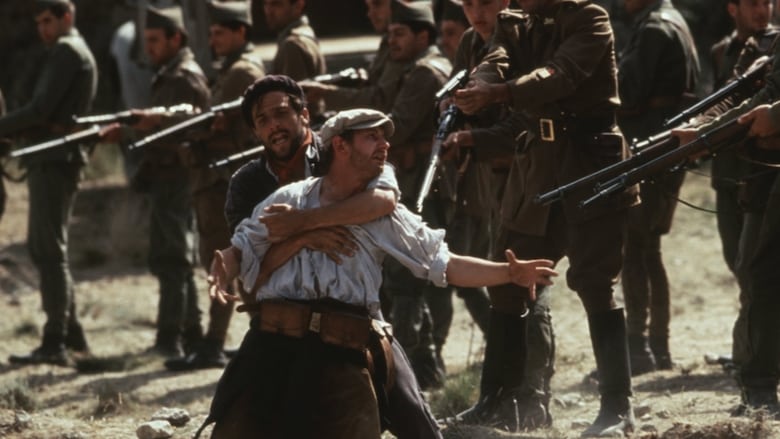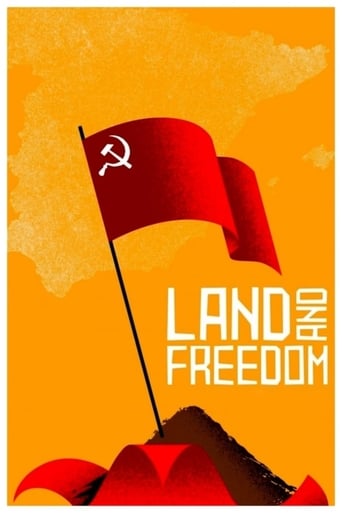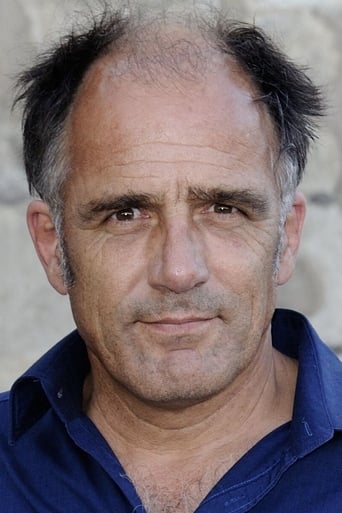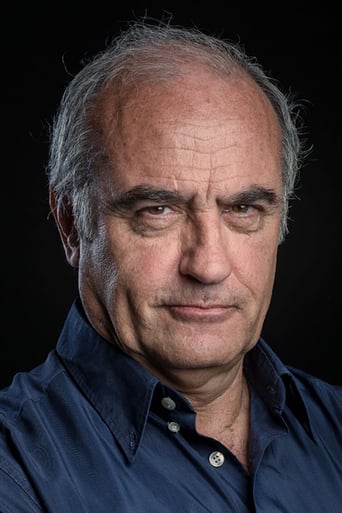David Carr is a British Communist who is unemployed. In 1936, when the Spanish Civil War begins, he decides to fight for the Republican side, a coalition of liberals, communists and anarchists, so he joins the POUM militia and witnesses firsthand the betrayal of the Spanish revolution by Stalin's followers and Moscow's orders.
Similar titles
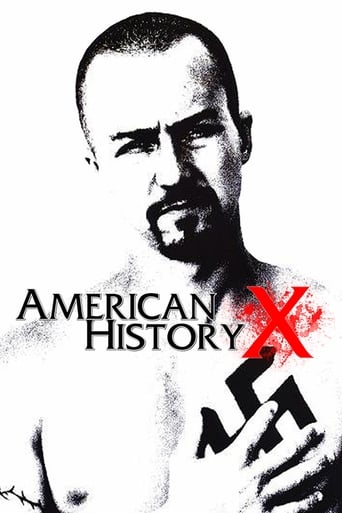
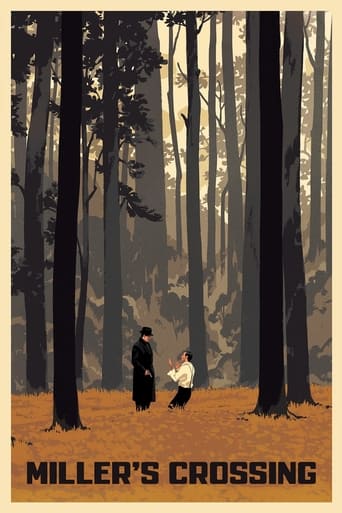
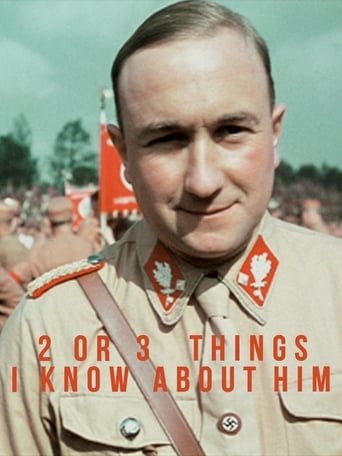
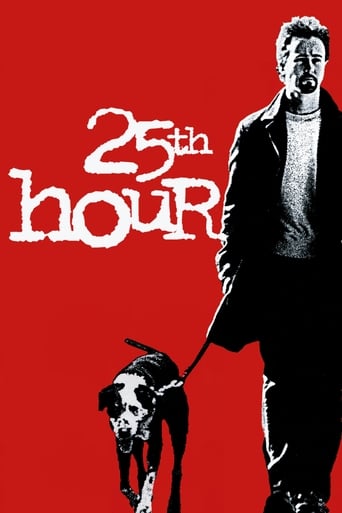
You May Also Like
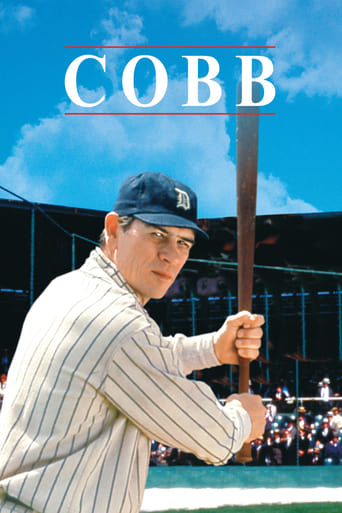

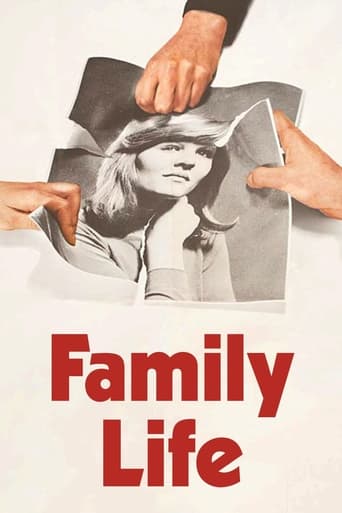

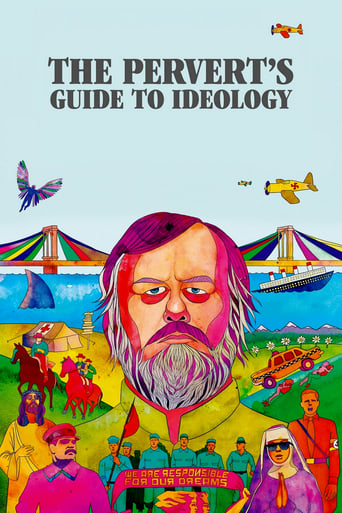
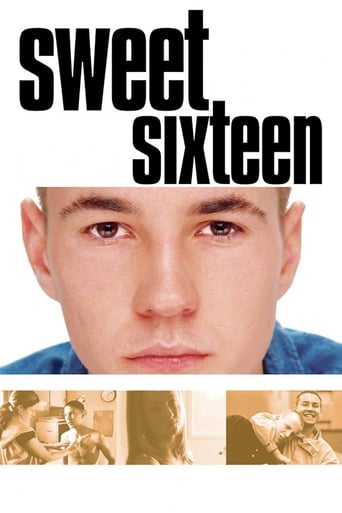

Reviews
Simply A Masterpiece
It's entirely possible that sending the audience out feeling lousy was intentional
Ok... Let's be honest. It cannot be the best movie but is quite enjoyable. The movie has the potential to develop a great plot for future movies
The movie's not perfect, but it sticks the landing of its message. It was engaging - thrilling at times - and I personally thought it was a great time.
The story of a working class miner in the Uk becoming a committed part of a greater struggle in Spain. One soon realizes that the main battle is between the rich conservative fascists and those they seek to exploit. The rich own the levers of power and the land. Religion and conservatism are about maintaining control.This movie is based on Orwells Homage to Catalonia and his experiences during the Spanish Civil War. Read this book if u want an indepth view of what went on. The movie simplifies this reality. The anti fascist side was fragmented into many groups and were ultimately betrayed by Stalins agenda. An international group fought fascism but they were defeated. This is a movie about heroic commitment to an ideal. Of course we now know that Stalins Communism as a system failed. It was just a cloak for centralised totalitarian control. It was at the time seen as an alternative to capitalism and exploitive extremism. This movie fits in with the movie Grapes of Wrath. Both were during a period of chaos and depression. The speech at the end Of GOF shows a similar commitment to fight fascist police, company thugs, robber banks , exploitation and etc. I really enjoyed the story and I think KL told the story well.Its a little known episode just predating the main event of WW2. As a theory Communism is closer to pure democracy, than capitalism is, I think.This movie is hard to get in the US. Probably because it shows alternative ideas, - Communism, Anarchists, Socialists ,union groups.
There is much said about this film and so I only want to point out one thing. It is the Stalinist propaganda that tells the story that the anarchists and trotskyst slaughtered thousands of priests and burned down nearly all the churches in Spain and because of that the deeply religious people of Spain turned against socialism and so it was necessary for the Soviet Union to purge the International Brigades and the different groups who fought for the republic. It's brilliant how Loach turn this Stalinist propaganda into an argument against Stalin and for the trotskyst POUM by showing that the priest who is killed, is a brutal fascists and that all non-fascist inhabitants of that village agree with the execution of that priest. With that scene Loach is saying that those people who are against the actions against the church are in fact that ones who don't get along with the opinion of the so called "deeply religious people of Spain".There are many more definite parts of the film against Stalinism but since I had a loud and heavy argument with a Stalinist about the Spanish Civil War I specially like this one.
With the time that has elapsed since the Spanish Civil War and the time that has also elapsed since this film came out, 1995, this film has probably completely changed in meaning and what's more it must be extremely far away from what the non-Spanish citizens who participated in the Civil War might have thought at the time and might have remembered afterwards. The film shows essentially military amateurism and political strife on the front, since there was a real front with Franco and professional armed forces on the other side, as well as in Barcelona. Three trends are shown though not always clearly identified: the communists often called Stalinists, the anarchists identified as the CNT and the POUM who is some kind of Trotskyite organization both anti-communist and anti-anarchist and at the same time for total revolution as fast as possible, with the full collectivization of land, and a high level of independence, autonomy, even the refusal of hierarchy and authority. It led to a catastrophe of course with Franco helped by Mussolini and Hitler, and the communists only helped by other communist parties with the International Brigades and by Stalin provided the Stalinist model was followed. That clearly led to defeat. But an explanation is not given in the film. It is too short to just say discord prevailed. Why did it prevail? There we cannot give one answer only. There are several and even many. At first the weight of the international situation that made Spain a stake of the near future between all the western European countries, Italy and Germany included, and thus a divided West that let Hitler and Mussolini do what they wanted without any restraint, on one side, and on the other side the Communist International and the USSR who were trying to impose a clear model: collectivization of land and nationalization of industry, along with a strong state organization with a professional military force. No sense of compromise, no desire to reach any kind of compromise. Add to that the role of the church and the deep anti-clerical feelings of some sections of this Spanish left. Don't forget the sexist bigotry of a deeply catholic country and people: the equality of women could not last very long. That led to a civil war within the civil war and the defeat was guaranteed. But do not believe this film does not speak to us today, in the time of Obama in a globalized world in the midst of a financial crisis. The left is totally unable to find a complete unity on a realistic project and they have been systematically side-tracked in the recent or not so recent years in France or Italy or Greece. Spain is an exception, but probably not for long. The question that emerges from the film is: Was the social revolution advocated by these various revolutionary factions a realistic objective? Was it the real way History was going to take? I must admit the picture that comes out of this film makes me doubt it very much, especially twenty years after the fall of the last European communist experimentation. It feels as if that project was doomed to fail because of its unrealistic final objective, as well as the short term and middle term stages of that program. But there is a strong fragrance of absurdity in the depicted situation. They try to force history, accelerate it, in a way rape it, and history goes against that violation that can only work with a strong unity of the people behind that strong line and with a strong political and military power in the hands of the unified or purified leadership of the transformation, and yet for how long before a serious reform or final defeat? Sad but still true: those who try to violate history and its own pace, be they on the right or on the left, are totally blind to the fact that history does not follow a strict agenda and does not move along a straight line.Dr Jacques COULARDEAU, University Paris 1 Pantheon Sorbonne, University Versailles Saint Quentin en Yvelines, CEGID
I think this is the first film about the Spanish Civil War since For Whom The Bell Tolls. Which would have been good, if it hadn't chosen to bang the Trotskyist drum and ignore the real fighters.It starts with an historic blunder - the rising was not led by General Franco. It was organized by General Mola and General Franco sat on the fence till the last minute. But the Military-Rightists - not all fascists - had the sense to rally round their most successful leader.The important front was Madrid, which held off the enemy till the very end. POUM, whose tale is told in this film, were a small force on a front that barely moved throughout the war.That a Communist Party member should accidentally join POUM is no more likely than a Free Presbyterian accidentally taking Catholic communion. Besides, the Communist Party had a well-organized network taking members and sympathizers to the International Brigades. POUM had a smaller network which in Britain was linked to a body called the Independent Labour Party, which is how George Orwell got there. The hero's adventures in Spain somewhat shadow Orwell's, but have been reinvented to make him more likable, I suppose.The telephone exchange was taken over because the Anarchists were tapping everyone's phone. This was done with the authorization of the legal elected government of Catalonia, a government trying desperately to rally military power against the Fascists, who were methodically conquering one Republican enclave after another. The bombing of Guernica and the fall of the Basque Republic occurred at much the same time. A bloody stupid time for leftists to get into a fight with an anti-Fascist government, I'd have thought.
Top Streaming Movies











